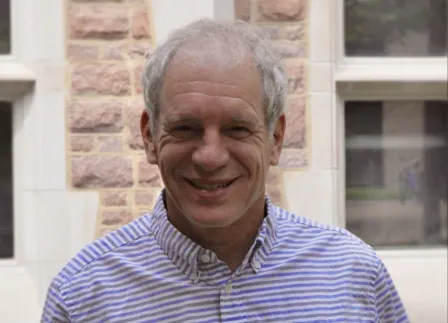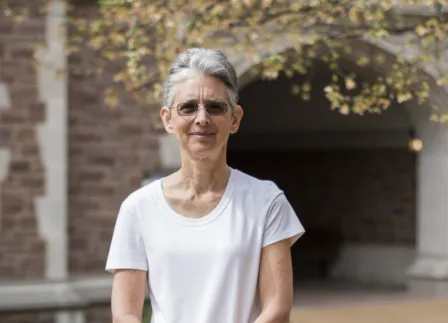
Department Retirements
By Nikki Corder
Mark McDaniel
Director of the Center for Integrative Research on Cognition, Learning, and Education (CIRCLE)
Professor of Psychological & Brain Sciences

Dr. Mark McDaniel joined Washington University in 2004 and has been a pillar of research and teaching ever since. He is known around the world for his work on prospective memory, on category learning, and on applying cognitive science to education. As the founding director of CIRCLE (The Center for Integrative Research on Cognition, Learning, and Education), Mark has been a leader in applying the science of learning to pedagogy here at Wash U and around the world.
His work has focused on the general area of human learning and memory, and he has been especially involved in the following research areas:
- Applying cognitive science to education, with research conducted in biology, chemistry, geological sciences, and physics education. An important aspect of this work is exploring individual differences in the tendency for learners to focus on abstraction versus learning of examples when attempting to acquire complex concepts. Along with colleagues, Peter Brown and Roddy Roediger, Mark authored a book published by Harvard University Press entitled Make it Stick: The Science of Successful Learning (2014) to make the core scientific findings on learning accessible to teachers, students, and trainers.
- The influence of retrieval (attempting to recall information from memory) on retention and transfer; that is, retrieval itself promotes learning. This includes examining retrieval practice effects in terms of basic underlying mechanisms and in terms of practical applications (the testing effect). His work on practical applications ranges from laboratory experiments with authentic educational materials to classroom experiments showing that practice testing is a highly effective learning technique.
- How people remember to execute intended actions at some future point in time, termed prospective memory. With his colleague Gilles Einstein, Mark developed ways to study prospective memory in the laboratory, and together they have developed a theory explaining how prospective memory works. This collaboration has spawned three decades of research investigating different aspects of this important memory process in science of memory research. They published the first book integrating and synthesizing the rapidly expanding research in prospective memory (McDaniel & Einstein, 2007).
- More recently, Mark has taken interest in working on programs to train students how to use effective learning strategies, so that they are successful in school and perhaps develop a life-long love of learning.
Following his retirement, Mark plans to continue working as a Research Scientist in the department. He will focus on two projects: 1) learning – strategy training work, which is ongoing in high schools and universities around the world and 2) writing a second book with Roddy Roediger as a follow-up to their initial collaboration: Make It Stick (Harvard University Press, 2014). He is also looking forward to spending more time with friends, adding to his exercise routines of swimming/fast walking/strength work, playing more pickle ball, and improving his saxophone playing skills.
Mark has been at Washington University for 20 years and has very much enjoyed being part of the university. He says, “The students are interested and engaged – a joy to interact with. The faculty is outstanding as is the staff in P&BS. I feel fortunate to have benefited from being around tremendous colleagues at WU.”
Becky Treiman
Professor of Psychological & Brain Sciences
Burke & Elizabeth High Baker Professor of Child Development in Arts & Sciences

Dr. Becky Treiman joined Washington University in 2002. She is one of the world’s leading experts in how children learn to read. Her research has focused on language, especially on the development of reading and spelling. Becky and her colleagues have studied the invented spellings of young children and the linguistic reasons why they write words the way they do. They have also studied writing systems themselves. Their analyses of English spelling-to-sound relationships, for example, show that these relations are not as chaotic as often believed. In other research, Becky and her colleagues have looked at how adults take advantage of the subtle regularities that writing systems offer and how children learn to do so.
Becky’s work offers insight into the processes involved in reading and spelling and it also affords much-needed understanding as to how best to teach these skills. She has written two books based on her research (Beginning to spell; How children learn to write words)--both with longtime colleague Brett Kessler--and was a recipient of the Distinguished Scientific Contribution award from the Society for the Scientific Study of Reading. In addition to making foundational research contributions in her laboratory, she has worked to translate basic science to improve education through writing, service, and consulting.
In the classroom, Becky’s teaching has centered on psycholinguistics and developmental psychology, including classes such as Language Acquisition and Psychology of Language. Her teaching has been central for the Cognition in Childrenconcentration and for the Linguistics major. Becky offers high praise from those enrolled in her classes: “I’ve found the students at Washington University to be amazing.”
Following her retirement, Becky will transition to a research scientist role in the department. She and her husband also have plans to travel, including a trip to Spain to put their Duolingo-acquired knowledge to the test.